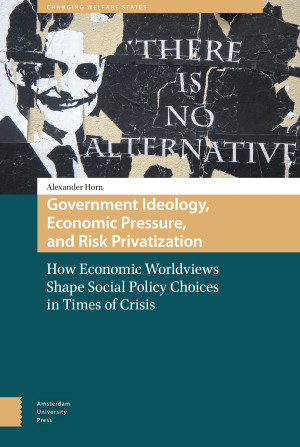1. Risk Privatization, Economic Crisis, and the Primacy of Politics
1.1. Context, Research Problem, and Research Question
1.2. The Independent Variable Problem
1.3. Addressing the Independent Variable Problem in the Study of Partisan Effects
1.4. Way of Preceding and Outline of the Results
2. Much Ado about Nothing? Retrenchment versus Resilience
2.1. What Is Retrenchment? Searching for a Definition
2.2. How to Measure Retrenchment?
2.3. Developments and Patterns in OECD Countries
2.4. When Is Change Significant? Retrenchment and Its Consequences
2.5. Conclusion
3. Theoretical and Analytical Framework: What We (Do Not) Know
3.1. Three Perspectives on Government Ideology and Retrenchment
3.2. State of Research: Inconclusive Evidence, Desiderata, and Problems
4. Theoretical and Analytical Framework: Taking Ideology Seriously
4.1. The "Independent Variable Problem" in Comparative Welfare Research
4.2. Addressing the Problem: Ideology as Cognitive Frame/Belief System
5. The "End of Ideology?" Government Ideology over Time
5.1. The Debate on Ideological Change and Ideological Convergence
5.2. Developments and Patterns: Partial Ideological Convergence
6. The Ideological Complexion of Government and Retrenchment
6.1. Research Design: Case Selection, Data, and Model Specification
6.2. Group-Interest Explanations versus the General Framing Argument
6.3. Testing Robustness, Alternative, and Complementary Explanations
6.4. Specific Framing Argument: Ideology Moderates Economic Pressure
6.5. Crisis, Ideology, and Retrenchment in Germany, the UK, and Sweden
6.6. Summary Regarding the Hypotheses: Why Ideology Still Matters
7. Ideology Still Matters: Findings, Limitations, and Implications
7.1. Summary and Findings
7.2. Implications for the "Old" versus "New" Politics Debate
7.3. The Contribution(s) of the Study
7.4. Limitations of the Study and Avenues for Future Research
7.5. Implications for Representative Democracy and the Welfare State Debate
8. References
9. Annex

